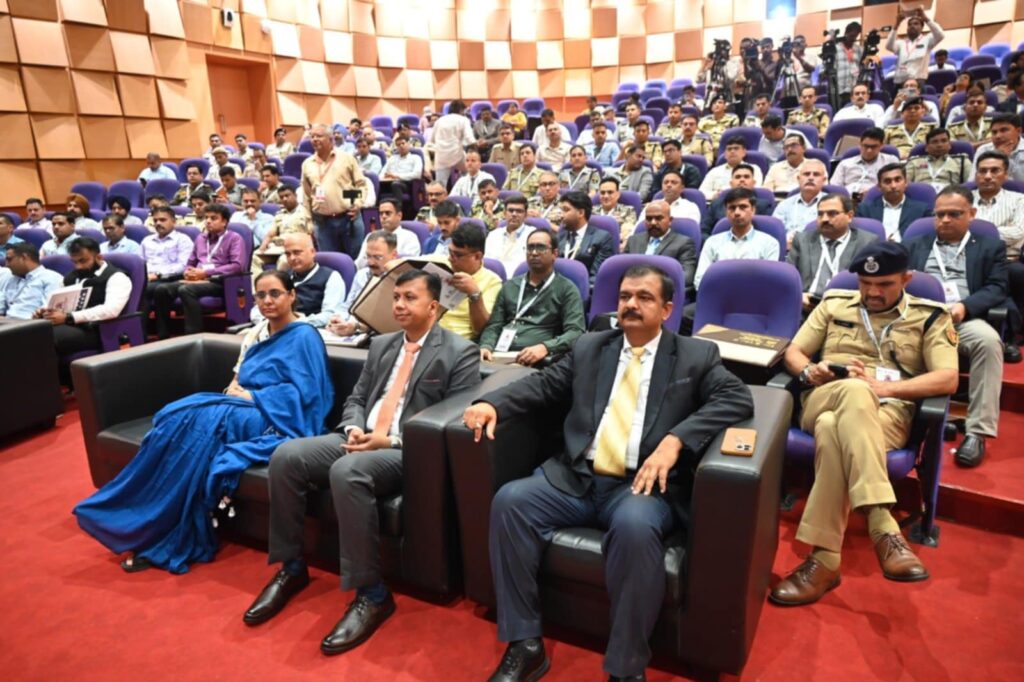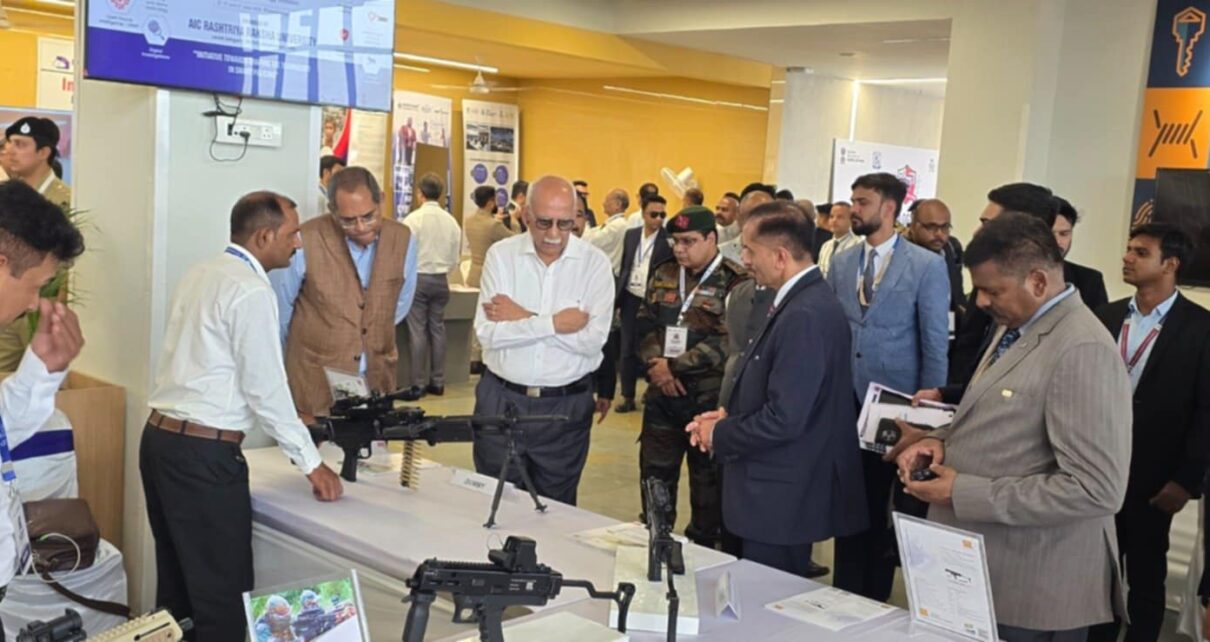Gandhinagar, Gujarat – June 5, 2025 –The Rashtriya Raksha University (RRU), in partnership with the AIC-RRU Incubation Foundation, hosted the Police Technology Summit 2025 today, June 5, 2025. The summit is scheduled to conclude on June 6, 2025, with product presentations and demonstrations from various organizations.
The primary objective of the Police Technology Summit 2025 was to facilitate a gathering of prominent experts, police officials, and technology providers. The aim was to explore the newest developments in policing technologies. The event program included keynote speeches, interactive sessions, and product demonstrations, creating a forum for the exchange of knowledge and collaborative efforts.

Esteemed guests included Mr. Alok Joshi, Chairman of the National Security Advisory Board (NSAB), who shared his insights and expertise. Prof. (Dr.) Bimal N. Patel, Vice-Chancellor of RRU, provided an overview of the university’s mandate and its Teaching, Research, Education & Extension activities. The event also saw the presence of high-ranking police officials, including those of IG & DIG rank, from across India.
National Security Advisory Board chairman Alok Joshi in his speech emphasized the need for intelligence sharing among government agencies for better results and asserted that one of the challenges agencies face is breaking the silos in which they operate.
Joshi, who was addressing delegates at the ‘Police Technology Summit 2025’ at Rashtriya Raksha University in Gandhinagar.
“India stands at a pivotal moment where technology can revolutionize law enforcement. However, the success of this revolution depends on collecting data and analyzing it, sharing it swiftly within and across agencies, and recalibrating systems through feedback, all the while placing the human factor at the heart of our efforts,” Joshi said in his address.
“One of the challenges that India is facing is breaking the silos without compromising on the principle of ‘need to know.’ I think that is something that is central to our system, and it will not go away,” the retired IPS officer said.
He asserted that analyzing and operationalizing intelligence is equally important. Joshi said all officials must remember that someone is the consumer of the information they are receiving.
“What would you expect the consumer to do with that information? I think this is something that has to be ingrained in the system, both at the time of collection and at the time of dissemination,” he said.
He said no intelligence is complete without feedback, but it is equally difficult to get feedback on the input shared with other agencies.
“It is very difficult, but as a producer, it is your duty to chase it. Ensure that you get feedback or have a relationship with that organization where you have the trust and the confidence built in to give you that feedback,” he added.
During his address, Joshi also said the government should share the development cost incurred by entrepreneurs building indigenous technologies.
“If you want to strengthen your indigenous effort, you have to pay the cost for it. The development cost has to be shared by the government. At NSAB, we have started taking a re-look at the procurement process, especially for policing and security agencies. It is necessary because you can’t have a no-cost, no-commitment principle. Working in this kind of environment, it will just not work. It will not encourage the industry,” he stressed.
The Police Technology Summit 2025 aimed to be a significant event in the advancement of policing, creating a collaborative space for the development of technology to improve public safety. The summit included demonstrations from roughly 37 indigenous companies, presenting their latest products and solutions designed for law enforcement agencies. Officials from the Central Armed Police Forces (CAPF) and various State & Union Territory (UT) Police departments had the opportunity to engage with company representatives. They learned about product features and explored how these technologies could enhance their operational effectiveness. This interaction was intended to promote the adoption of innovative solutions, thereby improving policing capabilities throughout the country. Below is the list of 37 companies which showcased their product during the event:
Homeland Aero, Lokesh Machines, Langsense AI, MicoB, Tactilink, Tactix, Tata Communications, Fx UAV, Nivetti, Billion Carbon, Oracle, AdvaitTheragnostics, Chakra, Vrisva Space, The Moe, ETS, TransTrack, Pelorus Technologies, NexSentra Technologies, Globals, Reparo 3D Printing, HyperLab. Mehrizm, Roombr, FaceTagr, Optimized Electrotech, KhojiInfotech, Mobisec, Shyam VNL, Systools Software, Awiros, Heritage Cyberworld, BeyonData, Straightarc, ECS, Commando Kennels andYhonk.
The summit, themed “Initiative Towards Shaping the Technology in SMART Policing,” explored innovations, digital forensics, and cutting-edge solutions for modern policing. Organized by AIC-Rashtriya Raksha University and supported by the Ministry of Home Affairs, Government of India, the event centered on digital investigations and the future of law enforcement technology.
It aimed to provide a platform for discussing and exploring advancements in areas such as cyber crime and digital forensics.





